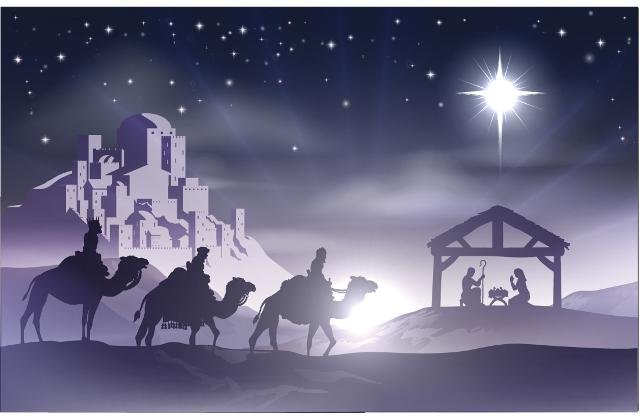At this time, we all buy gifts and put together Christmas trees, although few of us wonder where these traditions come from or what they hide behind. For many it is a religious holiday and for others simply a good occasion to be with family, but beyond that it is also interesting to know some curious facts about Christmas, so read on and find out.
Rodolfo's nose
We all know the red-nosed reindeer that helps Santa Claus, but we do not know why his nose is shiny. A group of Norwegian scientists has the theory that it is a parasitic infection of their respiratory system.Christmas trees
Although many prefer natural trees, cut and decorated, others buy artificial trees. This custom was created by the Germans who started making trees with dyed goose feathers.
- December 25
The specific date of the birth of Jesus Christ was established only in the year 350 of the common era by Pope Julius I.
- The official colors
The colors of Christmas are green, red and gold. Green represents rebirth and life, red is for the blood of Christ and gold is light, wealth and royalty.
- Mistletoe
Sure you know the tradition of kissing under the mistletoe, but this plant is much more than that. For the druids it was sacred because it remained green during the winter and, according to the belief, cured infertility and protected from evil.
- Pagan party
Christmas has its roots in the pagan festivals celebrated during December. As the Catholic Church disapproved of these festivities, it established the birth of Jesus on December 25 to end these celebrations, even though there is no proof that he was really born that day.
Christmas stockings
The tradition of placing stockings for gifts comes from the origins of San Nicolás. This saint, on which the current Santa Claus is based, saved three girls who had to prostitute themselves. So they did not leave gold coins in their socks while they slept.Luther decorated the first tree
According to the story, the Protestant Martin Luther was the first to decorate a Christmas tree. Seeing the stars shine among the branches, he decided to show the same to his children by bringing a tree to his house and putting candles in it.
Making calculations
According to Unicef, there are 2106 million children in the world, and if we calculate that there are 2.5 children per house on average, Santa Claus should make 842 million stops during Christmas night. This implies that it should do so in 2/10000 seconds and accelerate 20.5 billion meters per second at each stop. The force of this acceleration would kill Santa Claus instantly.Night of Peace
The most popular Christmas song is Noche de Paz, with 733 versions since 1973. It is said that it was written in Austria by Father Joseph Mohr when the church organ broke. However, the story that seems to be true is that of a priest who wrote it while staying in a church in Austria.


